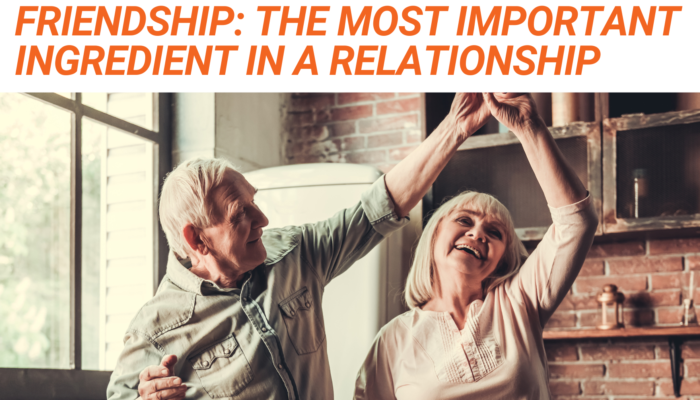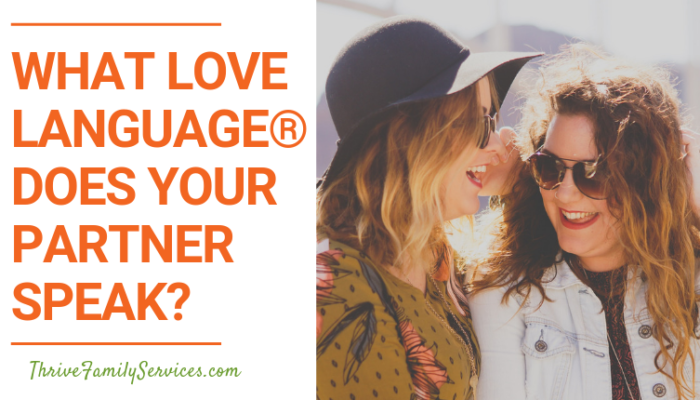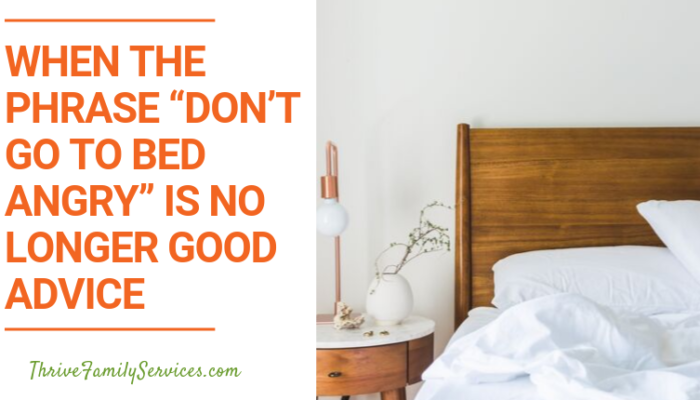If someone were to “cook up” a successful, happy, long-term relationship, they would need to gather a lot of ingredients.
Maybe they’d start with a big, heaping cup of love. Then they’d throw in a handful of romantic attraction. The recipe might also call for spoonfuls of intimacy, communication, commitment, and trust.
Sounds like a pretty good recipe for a relationship, right?
All of these ingredients – love, romance, attraction, intimacy, communication, commitment, and trust – make for a great relationship. The only problem is that there is no human being on this planet who can provide those things all of the time.
Stress, time, and negative events can all impact these factors in a relationship.
So what should be the most important ingredient in a relationship? What has been proven to stand the test of time and helps people be more forgiving and loving towards each other?
The answer is friendship.
Couples who are friends above all else are better equipped to survive stress and hardships than couples who are not.
One relationship psychologist, Dr. Gottman, said that “long-term vitality and connection is maintained through moments of intentional friendship.”
And research shows that this couldn’t be more true! Couples who have a strong friendship with one another are more likely to enjoy each other’s company, respect each other’s ideas, and be more forgiving of each other’s mistakes. They know so much about each other, and they still accept the other for who they are.
It doesn’t matter if the friendship is formed before or after the romantic relationship begins. But it is incredibly common for romance to blossom from friendship. In fact, it’s estimated that roughly 40% of couples were friends before evolving into a romantic relationship.
It is important to note that having a strong friendship now doesn’t necessarily mean that your relationship will last – although it does help!
Time, life events, and stress often diminish friendship if it’s not tended to. For most people, a good example of this is our friendships from high school. How would you rate your level of friendship with some of your closest high school friends? Chances are, the friendship has significantly decreased unless you and your friend made the intentional effort to stay in communication, visit each other, and remain close emotionally.
The same is true in relationships – even when you are living with each other! If couples don’t make an intentional effort to communicate as friends, hang out with each other in an enjoyable setting, or remain emotionally close to each other, the friendship will fade.
Most couples with children would agree that one of the most stressful times in their relationship was their transition to parenthood.
67% of new parents report a drop in relationship satisfaction after their first child is born. In the remaining 33% of couples, half of them reported no change in relational satisfaction, but the other half reported improved satisfaction. What makes the difference between these groups?
Well, research shows that the couples that rated themselves as better friends are the ones that grew closer together during the transition to parenthood. This friendship was tested by how well each individual knows his or her partner. Couples who are friends talk more to each other, know more about each other’s inner thoughts, fears, and stresses, and keeps these facts in mind when interacting with their partner. They have emotional intimacy and acceptance. They have fun together and turn to each other in times of stress.
On the other hand, couples who interacted strictly as co-parents or had lower levels of friendship reported the decrease or neutral change in their satisfaction with their partner. The research proved true for both heterosexual and same-sex couples!
In some ways, maintaining or creating a friendship with your partner is very easy to do, but in other ways, this can be challenging.
It takes intentional effort to create a sustainable friendship. Listen to what your partner shares with you. Notice how your partner reacts to certain situations. Remember these facts about your partner and apply your knowledge in your interactions with them.
Let’s think about it: Don’t we all love when our partner remembers details about us? It can be very sweet to see that your partner leaves off the mayonnaise on your sandwich, even though he or she likes it on theirs. It can be equally as endearing if your partner remembers that you have a very stressful day coming, so they plan something relaxing for you to do the night before. This is all part of what goes into our friendship with our partner. And the pay-off is incredible!
In the same way, a lack of friendship can be taxing on a relationship if partners don’t keep accurate knowledge in their heads about one another. There are instances where couples come into therapy and cannot think of a single stress that their partner is currently facing. Couples lose their connection to one another and forget to remain friends.
Read the following questions and decide if they are true or false. Give honest answers! If you answer something as false, take time out of your week to see if you can learn something new about your partner.
- I can name my partner’s favorite hobbies.
- I can tell you some of the important events coming up in my partner’s life, and I know exactly how they feel about them.
- I know my partner’s worst childhood experience.
- I can tell you some things that my partner wants to accomplish in their life.
- I am familiar with my partner’s spiritual and religious beliefs.
- I can tell you about my partner’s best friend in childhood.
- I can describe in detail what my partner’s day was like yesterday.
- I know where my partner likes to go when they want to cheer up.
- I can list my partner’s three favorite movies.
- My partner knows my current stressors.
- I know the three most important times in my partner’s life.
- I can tell you what my partner’s favorite date has been with me.
- My partner knows who my best friends are.
- I know how my partner would spend their money if they won the lottery.
- Periodically, I ask my partner about their day.
How did you do? If you couldn’t answer true to at least ten of those statements, don’t worry! It can be easy and fun to learn these things about your partner. Your partner might even enjoy telling you the answers.
So now that you have all of this knowledge in your head about your partner, what do you do with it? How can this knowledge make your friendship in your relationship stronger?
Simply put, feeling known by your partner and feeling like you know your partner will create closeness and friendship that couldn’t exist if this knowledge wasn’t there.
It is also beneficial to carry a big base of knowledge about your partner in times of stress or transition. If you know that your partner tends to be short with you when they are under a lot of stress, then you might have a different reaction when you see these actions than if you didn’t know this about your partner.
Let’s say you come home and see that your partner is making soup for dinner. You had this earlier this week, but you really like soup! You don’t mind having it twice this week. You say, “Oh, we’re having soup again?”
Your partner immediately gets defensive and says, “Yeah, so what? You don’t have to eat it if you don’t want to. I don’t care.”
Since you know your partner gets defensive when he or she is stressed out, you think to yourself, “Oh, they must have had a rough day.” This is a very different thought than instantly thinking, “What a jerk! What gives them the right to talk to me like that? I’ll show him/her rudeness, too!”
Think of the knowledge you have about your partner as a secret toolbox.
Look inside your knowledge bank to see if you can figure out what makes your partner feel happy, sad, angry, ashamed, excited… and see if you can figure out what they need from you during those times.
If you feel like you don’t know your partner very well or you feel like your partner doesn’t know you, there are ways to increase your knowledge about one another, and in turn, increase their friendship if the knowledge is retained and used. After all, nobody knows everything about their partner, and it can be fun to learn more!
If you need some help rekindling your friendship with your partner, our Greenwood Village Couples Counselors can help!




